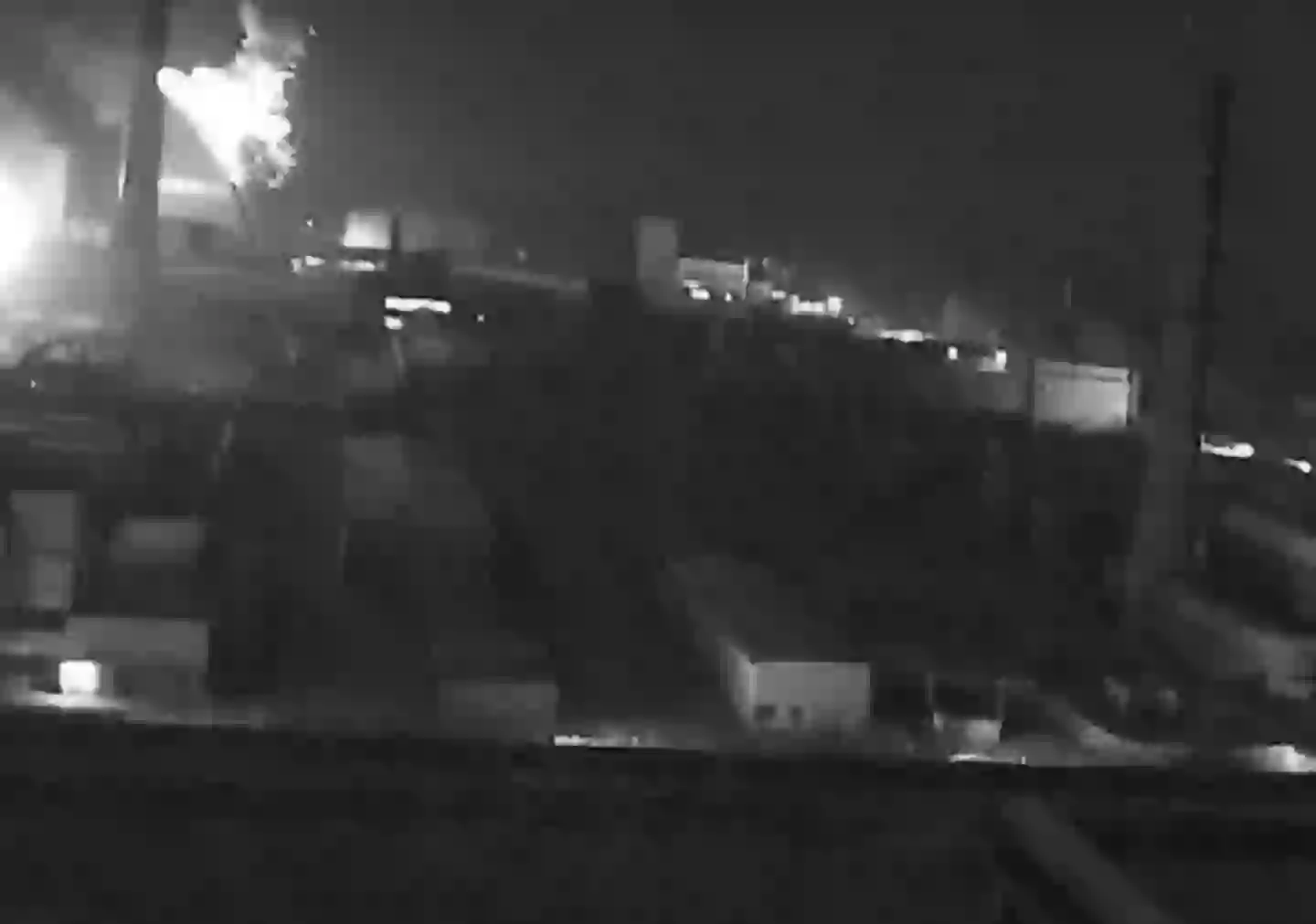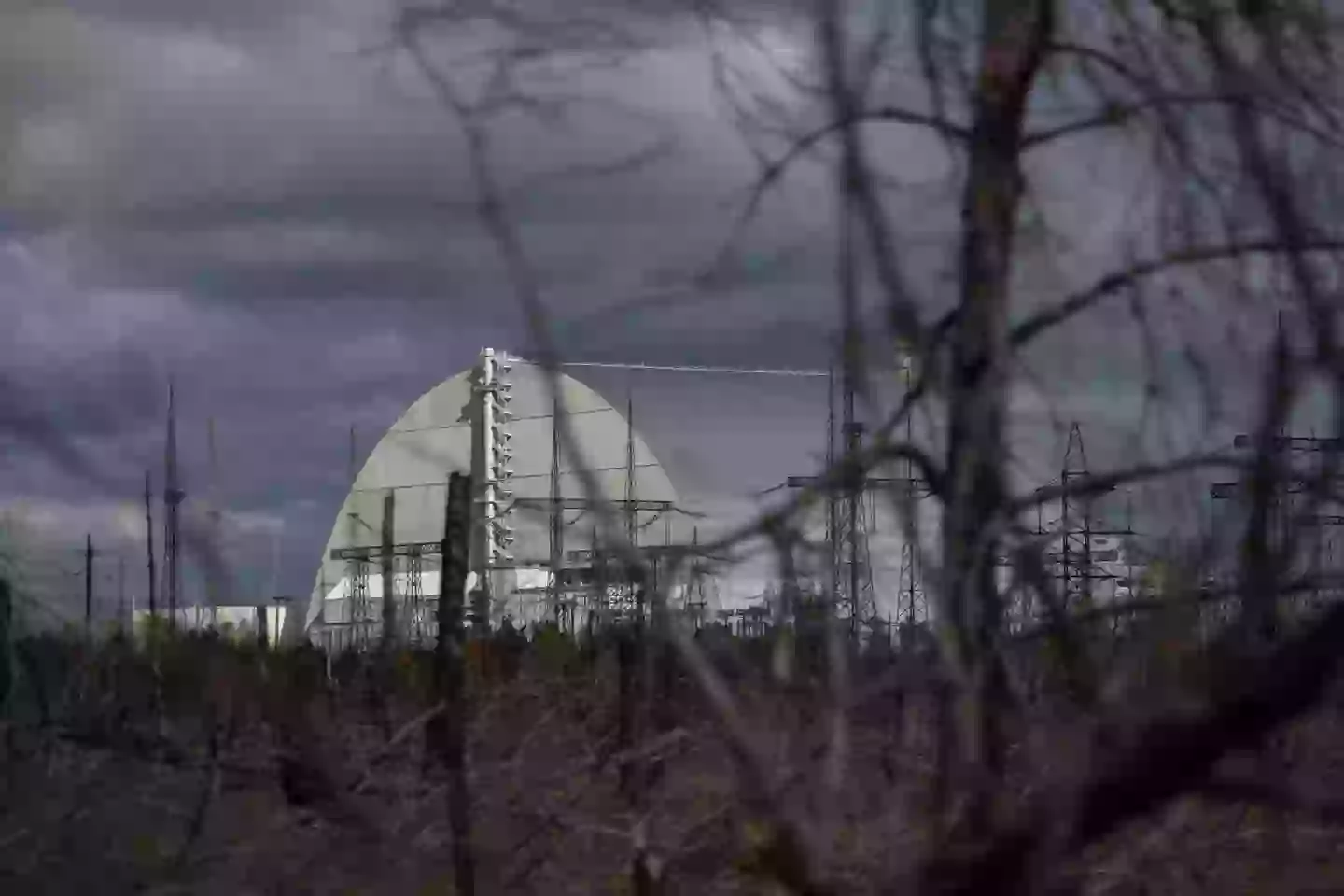
Throughout Vladimir Putin's invasion of Ukraine, Russia has made the Chernobyl Nuclear Power Plant a prominent battleground.
It's remained a prominent point of contention throughout the conflict - and Putin has now launched another attack on the radioactive site.
Take a look at the shocking footage here:
Almost three years since sending troops across the border, a Russian drone strike hit the protective dome which was built over Chernobyl to stop it spewing out deadly radiation.
Advert
Ukraine's President Volodymyr Zelensky announced that during the night (14 February), a high-explosive warhead smashed into the arch-shaped structure known as the 'New Safe Confinement'.
Thankfully, radiation levels in the area have so far not increased and there were no casualties as a result of the strike.
However, the drone attack did damage the shell protecting the power plant and sparked a fire, which was later extinguished.
Zelensky has dubbed Russia's latest bombardment as a 'terrorist threat to the entire world', while International Atomic Energy Agency (IAEA) chief Raphael Rossi said it 'underlines persistent nuclear safety risks'.
The Ukrainian President said that initial assessments of the scene suggest the damage to the dome 'is significant', sparking fears about what could happen if the strike had decimated the structure.
Advert
The idea of Putin relentlessly targeting Chernobyl isn't that far fetched, despite the obvious risks which come with firing warheads at the site of the world's worst nuclear accident, which took place in 1986.

Terrifying amounts of radiation were released into the environment following the explosion of the No. 4 reactor, which is thought to have resulted in the deaths of thousands of people and resulted in a 2,600km exclusion zone being erected - and while Ukraine has done it's best to minimise the lasting damage, Putin has taken a much more reckless approach in regards to Chernobyl throughout the conflict.
Ukrainian troops were sent to guard the site, which sits near the Belarus border, at the start of the invasion before Putin's men seized the place in February 2022.
Ironically, the following month, Russian troops were then reportedly evacuated from the Chernobyl exclusion zone and rushed to hospital after being struck down with radiation poisoning.
Advert
Despite it clearly being dangerous territory to wage war on, Putin doesn't seem to bothered about the potential havoc a successful strike on Chernobyl could bring.
And according to experts, decimating the protective dome wouldn't do anyone a lot of good.
Mineralogy and Radioactive Waste Management expert Professor Claire Corkhill, of the University of Bristol, told LADbible it would be 'a huge step backwards' after years of work to minimise radiation levels around the site.

"Damage to shelter at Chernobyl could pose a significant risk to the local environment surrounding the reactor, as it could result in the release of radioactive fuel and other contaminated components," she explained.
Advert
"Even in a worst case scenario, such a release would only impact the immediate area, and would not be as significant as the original accident."
She explained that during the 1986 disaster, the 'entire reactor core was on fire for 10 days', resulting in radiation 'spreading' around Europe.
Professor Corkhill continued: "An explosion that breached the shelter could release a much smaller amount of radioactivity, and more locally, for example within the 30km Chernobyl exclusion zone.
"The shelter was designed especially to protect the environment from the radioactive materials that are still inside the reactor, and it has special equipment for dismantling (or decommissioning) the reactor once and for all.
"If it were to be damaged, by any means, this would be a huge step backwards. The site will only be made safe again once it can be fully cleaned up."
Advert
Other experts have also previously raised concerns about Chernobyl being attacked and the subsequent impact it could have across the entire continent.
Anton Gerashchenko, an official advisor and a former deputy minister at the Ukrainian Ministry of Internal Affairs, shared his worries after Russian troops seized the site in 2022.
In a Facebook post, he said: "If as a result of the occupiers' artillery strikes the nuclear waste storage facility is destroyed, the radioactive dust may cover the territories of Ukraine, Belarus and the EU countries!"
Topics: Health, Russia, Science, Ukraine, World News, Chernobyl, Vladimir Putin